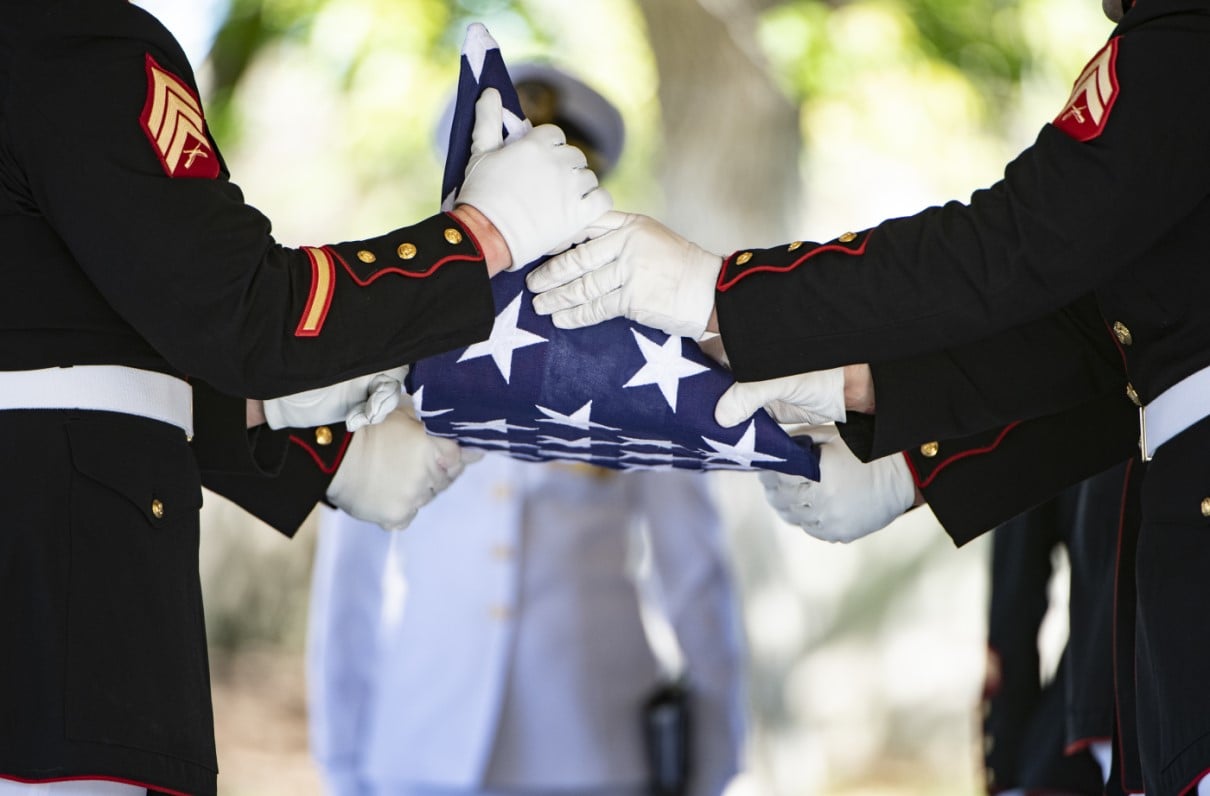The Veterans Benefits Administration (VBA) should allocate more resources for information technology, personnel, and customer-information management to modernize how it serves survivors and dependents, MOAA told members of a House of Representatives subcommittee Feb. 8.
MOAA was one of several veterans service organizations (VSO) to provide recommendations to the House Committee on Veterans’ Affairs Disability Assistance and Memorial Affairs subcommittee on how the VBA can improve its survivor outreach and assistance.
Improvements would include the expansion of communication and outreach efforts to surviving spouses, said Lt. Col. Mark Belinsky, USA (Ret), MOAA’s director of Government Relations for currently serving and retired affairs, as well implementing a “no wrong door” policy for survivors seeking assistance.
Belinsky shared a survivor’s story in his testimony illustrating the need for this “no wrong door” approach.
“It is almost like you become a non-person when your spouse dies,” the survivor told MOAA. “I still get mail for him, but I need my own ID number to respond. Everything is done on your husband’s Social Security number. When they gave me my own ID number, it wasn’t linked to my husband’s information and history. It’s a customer service problem. Why can’t I pick up the phone and have the representative see my information? A surviving spouse is still a customer and I know I am not a veteran.”
Belinsky also addressed ongoing concerns with Arlington National Cemetery – as the cemetery reaches capacity, MOAA would also like to see Congress pass legislation to transform a VA-run facility into the next national cemetery that would afford full military honors, with support from the VA and DoD.
“Many dependents struggle to understand proposed eligibility reductions at Arlington National Cemetery that will change plans for many elderly veterans and make most woman veterans ineligible,” Belinsky told the subcommittee.
[TAKE ACTION: Ask Congress to Preserve Arlington National Cemetery Eligibility for 20-Year Retirees]
A Better VBA
Recent automation has dramatically decreased the amount of time it takes the VBA to process Dependency and Indemnity Compensation (DIC) and burial benefit claims, according to testimony from Dr. Nilijah Carter, VBA’s executive director for pension and fiduciary service.
“I am proud to say that as of December 2021, our average days to complete these claims are well under 60,” Carter told the subcommittee.
However, both VSO panelists and members of the subcommittee stated VBA’s resource allocation and customer service in certain areas are not up to par.
Thirteen years after Congress created the VBA’s Office of Survivors Assistance (OSA) -- a resource for benefits and services for survivors and dependents of deceased veterans – subcommittee chair Rep. Elaine Luria (D-Va.) said she was shocked to learn only two people work at this office despite 450,000 survivors receiving benefits from VBA. OSA returned 5,953 emails in the last fiscal year and conducted only 17 speaking and training engagements in fiscal years 2020 and 2021, Luria said.
[UPDATED MONTHLY: MOAA’s Surviving Spouse Corner]
Information on the OSA is also difficult to find on the VBA’s website, and even the benefit letters sent to survivors after the death of their spouse can be confusing, said Belinsky, whose mother is a survivor.
According to Kelly Hruska, government relations director for the National Military Family Association, 40% of surviving spouses are over the age of 75, and many don’t have easy access to computers.
“In an ideal world, we would love to see expanded programs for the Office of Survivors Assistance,” said Ashlynne Haycock-Lohmannn, deputy director of policy for Tragedy Assistance Program for Survivors (TAPS). “If a survivor calls and notifies that a veteran has died, the VA should immediately do a gentle handoff to the OSA and they can begin the process of supporting the survivors through the benefits [process], making sure they are aware of all the programs out there.”
Gold Star Wives of America Member-at-Large Pamela Laurion told the subcommittee she would like to see the VBA have a casualty assistance representative, similar to what the service branches provide a survivor when upon the death of a servicemember.
“The grief process for a widow when a spouse dies leaves that person with an enormous amount of paperwork, an enormous amount of emotional trauma, and an enormous amount of financial trauma,” Laurion said. “So having that initial point of contact [with the VBA] and assistance with paperwork [is important] … so they can move forward with their benefits.”
Surviving Spouse Resources From MOAA
Legislative updates. Ways to connect with other surviving spouses. Information about your benefits. Bookmark this page today.

